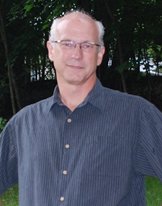Forensic and National Security Sciences Institute to dedicate new laboratory suite Nov. 8
Suite focuses on study of bioforensics, combustible materials

In response to the growing international threat of bioterrorism, the Forensic and National Security Sciences Institute (FNSSI) in The College of Arts and Sciences has established a state-of-the-art laboratory suite. A dedication ceremony for the facility will be held on Friday, Nov. 8, from 1-2:15 p.m. in SU’s Lyman Hall. The event is free and open to the public.
The ceremony will include remarks by SU Interim Chancellor and Vice Chancellor and Provost Eric F. Spina; George Langford, dean of The College of Arts and Sciences; James T. Spencer, associate dean of The College and executive director of FNSSI; David Knaebel, FNSSI Professor of Practice; and Stephanie Gladyck, an FNSSI graduate student.
Rounding out the program are guided tours of the suite, student poster presentations and a reception.
“The collective investments of the college and SU in forensics and national security sciences and in this suite, in particular, reflect our profound commitment to leveraging and building on our strengths across disciplines to create signature research opportunities and educational environments,” says Spina. “The FNSSI Laboratory Suite is a place where first-rate scholars, students and professionals from across a range of fields can collaborate to do great science and pursue novel solutions to complex, contemporary problems.”
Langford, also a professor of biology, echoes these sentiments. “This facility marks a new chapter in the life of the college,” he says. “Not only is it a physical expression of our commitment to forensic science training and research, but it also is a symbol of the dedication of the people working within it.”
Housed on the fourth floor of historic Lyman Hall, the 2,500-square-foot suite is composed of two labs, valued at more than $2 million. The principal investigator (P.I.) of one of the labs is Robert Silver, a biology and FNSSI professor, whose research includes the detection and remediation of combustible materials.
The P.I. for the other lab is Knaebel, whose work involves bioforensics. His lab is the result of a recent asset transfer agreement with SRC’s Bioforensics Group, involving personnel, specialized research materials and intellectual property.
The goals of the suite, which was renovated for $900,000, are as follows:
• to develop cell-based assays for the identification of combustible materials in real-world environments;
• to determine the origins of materials of concern (e.g., weapons of mass destruction and contraband), as well as their routes of travel;
• to determine the routes of travel of people of concern; and
• to determine DNA-based human-identity markers, incorporating novel approaches that save time, money, and handling.
Silver, who joined SU’s faculty in 2012, is a seasoned scientist who designs and builds many of his own instruments. “This suite was established to bring special scientific expertise to bear on questions within the realms of forensics and national security,” he says. “Our research is designed to be applicable within and beyond the boundaries of our laboratories … [by using] science to help the brave men and women who face great and lethal danger of explosive devices so that the rest of us may sleep more peacefully at night.”
Much of Silver’s teaching addresses light microscopy and optics for the sciences, as well as how science is used to solve cold cases and to counter weapons of mass destruction.
In addition to Silver and Knaebel, the suite will be used primarily by professors Spencer (inorganic chemistry), Michael Sponsler (organic chemistry) and Kevin Sweder (epigenetic inheritance); and by research scientists Ulrich Englich (X-ray crystallography) and Michael Marciano (genetics). Combined, their reservoir of knowledge embraces cell and molecular biology, microscopy, landscape ecology, plant ecology, DNA analysis, geospatial algorithm development, geo-location software tool development and visualization software development.
The team also benefits from a one-of-a-kind repository of more than 4,000 biological samples, used for testing and validating analytical approaches.
“Our labs will push the boundaries of DNA-based forensics research,” says Knaebel, a former SRC scientist who specializes in molecular biology and ecology. “They reflect the growing need for methodologies involving bioterrorism threats, chemical detection and analysis and sample provenance and origin."

“Although what we do at FNSSI is truly unique and exciting, reality is often different from perception,” he says, alluding to what some scientists call the “CSI Effect.” “For starters, none of our research is classified. Secondly, the process by which we analyze DNA is safe and utilizes benign chemicals. Thirdly, much of our bioforensic work involves air, water samples or clothing materials of forensic interest.”
Knaebel, whose Ph.D. mentor also worked at SU, adds: “I see incredible potential for interactions, partnering, scholarship and effective outcomes for bioforensics research within FNSSI and throughout the campus community. I’m excited to be here.”
FNSSI is the nation’s first program to comprehensively focus on the scientific interface between forensic and national security sciences.
Media Contact
Rob Enslin
